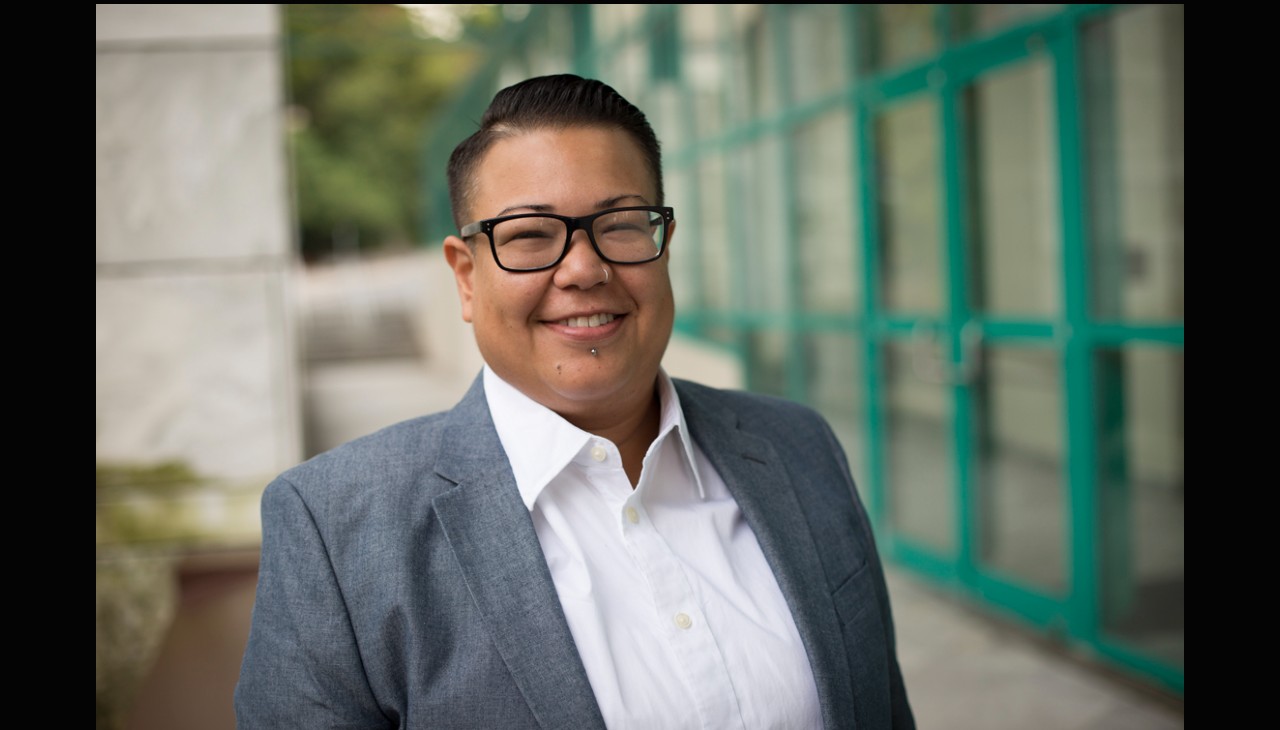
Can poetry challenge the systems of power?
In her book, 'The Queer Nuyorican', Karen Jaime explores historical queerness of the Nuyorican Poets Cafe
Karen Jaime was born and raised on Long Island, New York by a single Dominican mother who immigrated to New York in her twenties. Dominican cultural norms — the food, speaking Spanish at home (her mother was proficient but not fluent in English) — and community formations informed her upbringing. And, as someone who self-identifies as a woman, she feels comfortable under the label “Latina,” or “ Latina/o/x,” a term that refers to people of Latin American descent who are either born, raised, or have a lived experience in the United States, including Puerto Rico, Cuba, and the Dominican Republic in the Caribbean.
“I use Latina/o/x because I seek to be more inclusive and propose that this term addresses our changing political and cultural moment in the United States; can be used alongside, not instead of, already existing terms; and pushes us to move beyond the gender binary while challenging the patriarchy of Spanish (as opposed to the term “Hispanic),” she told AL DIA News in a recent interview.
Jaime, who is currently Assistant Professor of Performing and Media Arts and Latina/o Studies at Cornell University, is the author of The Queer Nuyorican: Racialized Sexualities and Aesthetics in Loisaida (NYU Press, 2021), a book that explores the historical queerness of the Nuyorican Poets Cafe, an emblematic performance space founded in 1973 by a group of predominantly Puerto Rican artists that became a countercultural oasis on New York City’s Lower East Side.
“This book began as my dissertation and was inspired by my time working as the host of the Friday Night Poetry Slam (a poetry competition), from 2003-2005, at this world-renowned cultural institution,” she explained.
An avid reader as a child, Jaime graduated with a double-major in History and Spanish Literature at Cornell University, where she first began writing poetry.
“I was inspired by the work of poets who challenged existing systems of power and who used art as part of their activist practice,” she said.
Initially, Jaime thought she would be a lawyer and even worked at a corporate law firm after her undergraduate studies. However, when she first read about the Nuyorican Poets Cafe and the history of its founders — Miguel Algarín and Miguel Piñero — she immediately saw echoes of the political activism she was participating in on campus.
“The founders’ usage of “Nuyorican,” with an uppercase “N,” marked an ethnic, political, and cultural identity signifying Puerto Rican community, cul-
ture, and struggle in New York City from the late 1960s through the 1980s,” the author explained.

“Nuyorican (uppercase “N”) was originally used as a pejorative term challenging the ethnic authenticity of people of Puerto Rican descent born, raised, or living in the U.S. by Puerto Ricans living on the island, because of the formers’ lack of fluency or usage of Spanish. In turn, by including “Nuyorican” in the name of their performance space, Algarín and Piñero made visible the lived political, social, and economic conditions of the Nuyorican community in the U.S.,” she added.
I was inspired by the work of poets who used art as part of their activist practice.
In The Queer Nuyorican, Jaime draws on this countercultural history of the Cafe and challenges how existing histories of that community define the space as specifically ethnic-Puerto Rican, heterosexual, and predominantly male.
RELATED CONTENT
“In my book, I focus on the contributions and interventions made by queer and trans artists of color, demonstrating how the Nuyorican Poets Cafe has operated as a queer space since its founding, both in terms of sex acts and performance practices,” she insisted.
Highlighting queer work
Her goal was to highlight the queer work of artists including Miguel Piñero, Regie Cabico, the participants in the Glam Slam, and Ellison Glenn/Black Cracker, by proposing the nuyorican (lowercase 'n') aesthetic.
“As a queer artistic practice, the Nuyorican aesthetic references the work of poets, writers, and creative producers who draw from the Cafe’s political history but are not necessarily ethnically Puerto Rican/Nuyorican,” Jaime said.
As a professor of Latina/o/x studies, she observes there is still a dearth of Latina/o/x professors and classes focusing on Latina/o/x experiences at universities throughout the U.S. The main challenges to solve this situation are promoting recruitment, retention, and support for Latina/o/x students and Latina/o/x faculty.
Queerness is too often erased from historical narratives
“My students are predominantly students of color and/or queer students who are looking for a professor who teaches classes that engages with topics germane to their lived experiences. I encourage them to follow their career paths by supporting them, mentoring them, sharing the resources I drew from when I was an undergraduate, and challenging them to move beyond any limitations placed before them,” she said.
In addition to the academic challenges, there is the challenge of recovering the “queerness of historical places like the N.P.C. “Queerness is too often erased from historical narratives,” she said.
“Seeing, reading and learning about, people of color, and queer people of color specifically, who have contributed to our political and social landscape, is important. It functions as a source of empowerment, providing us with models of what is possible,” she concluded.












LEAVE A COMMENT: